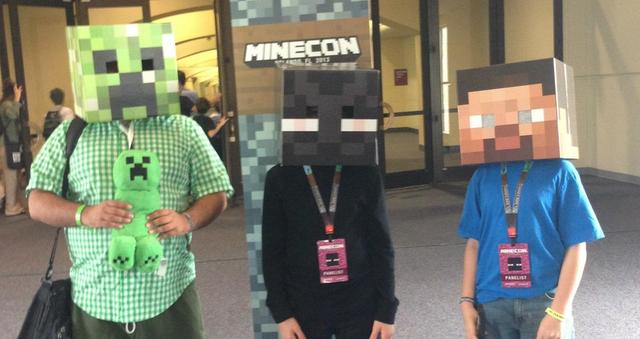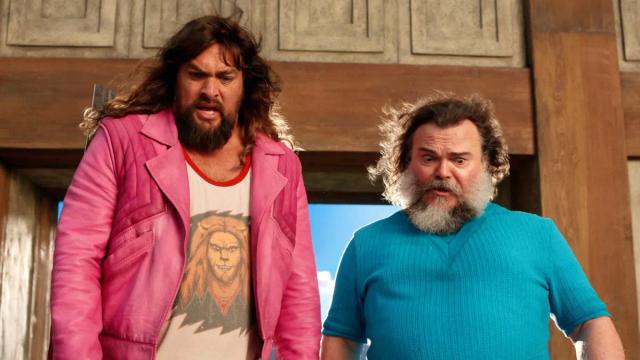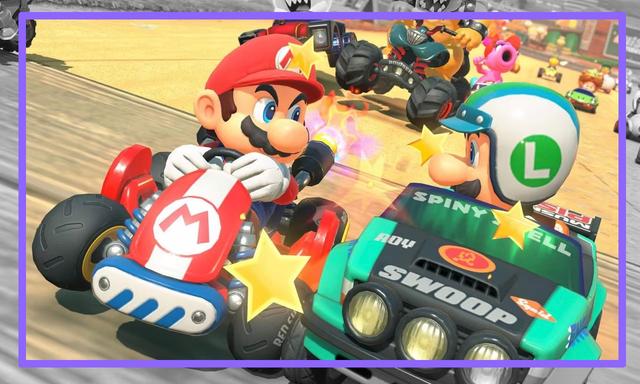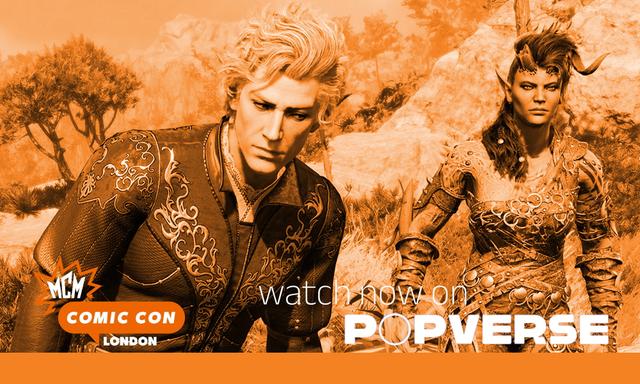If you click on a link and make a purchase we may receive a small commission. Read our editorial policy.
Four ways House of the Dragon is different Than Game of Thrones
Though set within the same fictional universe and sharing some familiar names, House of the Dragon differs from its parent show Game of Thrones in four key ways.

On the surface, HBO's Game of Thrones and its prequel spinoff series, House of the Dragon, have a lot in common. Both are inspired by the literary works of George R.R. Martin, both take place largely on the fictional continent of Westeros in a world resembling medieval England with the occasional dragon or fantastically-long season thrown in. Though House of the Dragon is set over 150 years before Game of Thrones, both shows feature some familiar family names, including the dragon-riding Targaryens, the honorable Starks from the North, and the scheming, filthy-rich Lannisters. Thanks to the relative stagnation of technological development in Westeros, the worlds of the two series look relatively the same and feature the same kinds of tools and methods of communication, etc. despite the gap in years between them. And both shows are, at their core, about struggles for political control of Westeros' Seven Kingdoms.
Yet dig beneath the surface, and there are several key differences that set House of the Dragon apart from Game of Thrones, from the way its paced, to the scale of its narrative, to the way it uses sex to tell its story, and its relationship with the internal history of the story what the shows are trying to do with that history. Let's take a closer look at each of those differences.
Game of Thrones vs. House of the Dragon - Pacing: time keeps on skipping

While Game of Thrones is certainly a fast-paced, action-packed show, the pace at which its narrative unfolds is relatively ponderous. Each season roughly maps out to a year of story time; by the end of its eight seasons, we've seen characters introduced as children grow into young adults (in the case of Bran Stark, very, very tall young adults) as the actors age with the series. Up until its final few seasons (when the show burned through its source material and narrative urgency kicked in as the end of the series loomed), characters traversing long distances across the continent would disappear for episodes at a time, or spend a good chunk of their season-long arc trying to get to one place (Arya, for example, spends all of season three on the road to Riverrun/the Twins).
Compared to this, the speed at which House of the Dragon's first season unfolds its narrative arc is positively breakneck. The series begins with a prologue set in 101 AC (one hundred and one years after Aegon Targaryen's conquest of Westeros); it then jumps ahead nine years for the rest of episode one. The second episode begins six months later, and then the third episode jumps three years ahead. Between episodes five and six, there is a ten year time jump, and several of the teenaged characters are replaced with new actors. Episode eight then jumps another six years ahead. The events of episode ten occur in 131 AC, thirty years after the prologue and twenty years after the show's narrative began in earnest. Over the course of the season, certain characters were portrayed by upwards of three different actors at various stages of their lives.
All this time jumping has an impact on how the series tells its story compared to Game of Thrones as well. Whereas the betrothal and wedding of Joffrey and Margaery unfolds across 12 episodes and two seasons in Game of Thrones, Daemon and Laena fall in love, get married, have two daughters, and see the end of the marriage when Laena dies in childbirth in the course of a single episode. The Triarchy, the largely off-screen political alliance that nips at the edges of King Viserys kingdom in the Stepstones, rises and falls and rises again (and falls) over the course of the season. In episode one, we see Alicent Hightower as a teenager, ogling knights alongside Rhaenyra at a tournament; by the end of the season, she has three grandchildren.
Much of these differences in the pace of the overarching narrative stem from the differences in the construction of the series' respective literary source material. While Game of Thrones is based on Martin's 'A Song of Ice and Fire' novels, which are written from a third-person limited perspective that puts us inside the heads of various characters, House of the Dragon is inspired by Fire & Blood, an in-universe history of the Targaryen dynasty, written by a variety of different (fictional) authors. As a result, it has a more omniscient perspective, one which never dives into the heads of the main players in the history it's documenting, while skipping over the less-impactful events in the lives of the characters. Neither series' approach is inherently better than the other (and with House of the Dragon reaching the start of the Targaryen civil war to which it had been building over its first season, it is likely to slow down and do away with significant time jumps going forward, unfolding its story at a pace more akin to that of Game of Thrones), but viewers coming to House of the Dragon from Game of Thrones will easily notice the difference.
Game of Thrones vs. House of the Dragon - Scope: a less sprawling Who's Who and who's where?

Similarly, the scale of the stories being told by the two series is different. While both are, at their core, about a struggle for the political control of the Seven Kingdoms, each one presents the scale of that struggle in a different way.
Even in just its first season, Game of Thrones is sweeping in scope, taking us from the crypts of Winterfell north to the frozen Wall and south to King's Landing, across the Narrow Sea to Pentos and the Great Grass Sea of the Dothraki, to roadside inns and military encampments and brothels alike.
House of the Dragon, meanwhile, is much more insular. Most of its action takes place in and around the city of King's Landing and inside the Red Keep specifically. Even when it ventures away from those settings, it doesn't venture far for very long: to the Kingswood surrounding the city or to the island holdings of Dragonstone and Driftmark, which reside in the same bay as King's Landing. There is plenty of talk of action in the far off Stepstones, but the series only goes there once; we briefly see Daemon and his family living in Pentos, but only for portions of one episode.
This difference comes, in part, due to the focus of the show. House of the Dragon is about a civil war amongst the members of House Targaryen; because they are the ruling house, their struggle ultimately pulls in a vast number of houses from across the realm, including names familiar from Game of Thrones such as Stark, Baratheon, and Lannister. But the Targaryens are the central characters of House of the Dragon, and because the Targaryens are conquerors, the only lands they hold are those of King's Landing and its immediate surroundings, giving the show little reason to venture far beyond that setting.
Relatedly, the focus on the Targaryens sidelines many of the Great Houses we are familiar with from Game of Thrones, or relegates them to cameo or supporting roles. This also assures that much of the story focuses on the trials and tribulations of upper class people at the top of society. Whereas Game of Thrones featured characters from all different families and walks of life, House of the Dragon centers itself mostly on the Targaryens, the sea-faring Velaryons (their ancestral cousins and closest allies) and the Hightowers (their political allies who marry into one branch of the Targaryen dynasty).
Even amongst those families, an argument could be made that there are specifically only four main characters in the series' first season around whom all the others swirl and serve: Rhaenrya, Alicent, Viserys, and Daemon (compared to Game of Thrones, which tended to group its characters by setting and often featured multiple drivers of action within each setting). This more limited scope of character and narrative will widen as the series continues and the dynastic struggle amongst the Targaryens spreads across the continent and sucks in more and more houses, but House of the Dragon will likely never approach the sweep of Game of Thrones, simply because Game of Thrones was never about a central group of characters the way House of the Dragon is a story about, first and foremost, the Targaryens.
Game of Thrones vs. House of the Dragon - Sex: it's not just for titilation

Games of Thrones is for many viewers synonymous with sexploitation, the technique of enlivening scenes of potentially-boring but necessary exposition by having the exposition delivered against a backdrop of nudity and sex. Littlefinger owning one of King's Landing's most prominent brothels made an easy setting for these sorts of scenes, but even as Littlefinger's role in Games of Thrones changed as the series went on, it continued to find a way to toss in at least a few sexposition scenes a season. The general critical consensus of this technique, when it aired and now, is not a good one.
In contrast, House of the Dragon treats sex and nudity much differently, not just for titilation, but to contribute to the development of both character and narrative. This is most notable in its fourth episode, 'King of the Narrow Sea', in which Rhaenyra undergoes a sexual awakening when she's brought by her uncle to a brothel in the Street of Silk, then returns to her chambers to seduce her Kingsguard bodyguard, Cristan Cole. While there is plenty of nudity and sex on display throughout the episode, it all serves to underscore Rhaenrya's character development as she comes to realize sex can be liberating and pleasurable, and starts to take control of her own sexuality. Intercut with these scenes are scenes of Alicent having sex with her husband, King Viserys, a dead-eyed look on her face as rats race across the bedstead. Here, sex is being used not to excite or entertain us, but to show how Alicent feels about her marriage, contrasting Rhaenyra's sexual liberation with the way Alicent's sense of duty has led sex to become a joyless chore.
In addition to informing Rhaenyra and Alicent's characterization, these scenes also become important to the overall narrative of the show, as several elements of the sexual activity in the episode go on to alter the story in fundamental ways, ultimately leading to a rift between Rhaenyra and Alicent which has significant repercussions and turning Cristan into a monstrous enemy of Rhaenyra's.
Later in the series, we watch as a serving girl named Dyana fearfully confesses to Alicent that she was raped by Alicent's son, Prince Aegon. While the scene is meant to establish just how terrible a person Aegon has grown into, it is shot from the perspective of Dyana as a survivor of sexual assault — it is her shame and pain and fear and the way Aegon's actions have affected her that are the focus of the scene, moreso than on what those actions say about Aegon. It is ultimately her story — not Aegon's — being told.
This is in stark contrast to one of Game of Thrones more infamous scenes of sexual assault, from season five's 'Unbowed, Unbent, Unbroken', in which Sansa Stark is raped by her husband Ramsey Bolton on their wedding night, an act Ramsey makes Theon Greyjoy (Sansa's foster brother, for all intents and purposes, whom Ramsey has repeated brutalized and broken to his will) observe. It is shot such that the camera focuses on Theon, not Sansa, suggesting the trauma he is experiencing watching Ramsey assault Sansa is more significant than the trauma Sansa is experiencing while being assaulted. It was immediately decried by fans and critics, and remains one of the prime examples of Game of Thrones' dicey relationship with sex.
One of the things which may account for the shows' different handling of sex and nudity is the fact that House of the Dragon has had in its first season alone as many episodes directed by a woman as Game of Thrones had in its entire nine year, eight season run. While Michelle MacLaren directed four episodes of Game of Thrones, Claire Kilner has directed three episodes of House of the Dragon while Geeta Patel directed one. Of the series' sex-focused fourth episode, which she directed, Kilner said, "It was important to know what’s a woman’s point of view here."
Game of Thrones vs. House of the Dragon - History: to break the wheel or keep it turning?

Finally, House of the Dragon is different from Game of Thrones in the way it interacts with its internal history. While both shows feature at their core a fight over the Iron Throne and control of the Seven Kingdoms of Westeros, Game of Thrones presents that struggle in a largely iconoclastic way.
Game of Thrones begins in an era in which the realm is ruled by the king who usurped the throne from the Targaryen dynasty that is at the center of House of the Dragon. In the unfolding aftermath of that king's death and the sparking of the titular 'game of thrones' to succeed him, one of the leading candidates, Daenerys, is herself the last of that usurped dynasty. But her arc is such that she is positioned as an unconventional ruler. Daenerys and her advisors speak frequently of 'breaking the wheel', that is, claiming the throne and then ruling in a way unlike anyone else in the 300 years since the realm was first conquered by Aegon. In one of the series' least-well received turns, Daenerys ultimately burns the wheel more than she breaks it, but in the end, it is an even more unconventional ruler than she who ends up winning the game of thrones. Thus, the entire arc of the series comes to be about breaking with the old ways and establishing something new.
House of the Dragon, meanwhile, is all about maintaining the integrity of the Targaryen dynasty and its control over the Iron Throne. Several of its central characters, chief amongst them King Viserys, are obsessed with the concept of legacy. We are told repeatedly that Viserys is a lover of history, with his scenes often unfolding against the backdrop of his massive model of the destroyed city of Old Valyria, a symbol of his affection for the past and the way it drives his actions in the present. After Viserys (almost reluctantly) names his daughter Rhaenyra as his heir in the first episode, the question of her actual legitimacy — will anyone in the patriarchal society of Westeros ever truly bow to a queen? — becomes a central question of the series, with the civil war that begins in earnest at the conclusion of season sparked in large part because of a faction that believes no, the old way of doing things is just fine and a woman shouldn't rule in her own right.
Yet you don't need to have read Fire & Blood to know that, whatever else happens, House of the Dragon will end with some kind of Targaryen on the throne (because there needs to be one still around for Robert Baratheon to usurp a few years before Game of Thrones begins). Where Games of Thrones ultimately fought to redefine the political makeup of Westeros; House of the Dragon is the story of the fight to maintain its existing status quo.
Which, again, isn't to say one approach is better than the other, but it does mean that House of the Dragon has to do some extra work to make its protagonists — such as they are in the morally-complicated world of both shows — sympathetic despite the fact that their overarching goal is the continuance of a near-absolute form of government. A lot of that sympathy is generated from the fact that Rhaenyra is essentially fighting against the patriarchy. But the series' relationship with history is another reason the prophecy of Aegon's dream was introduced: it give Rhaenyra a moral imperative for fighting to keep the god-like dragon riders lording over the country in power, because without them holding the realm together, the whole world will be destroyed. Thus, while success in Game of Thrones is defined by doing something different, maintaining the political status quo is a necessity in House of the Dragon.
How HBO's House of the Dragon retconned Game of Thrones and what it could mean for the future of the series.
Follow Popverse for upcoming event coverage and news
Find out how we conduct our review by reading our review policy
Let Popverse be your tour guide through the wilderness of pop culture
Sign in and let us help you find your new favorite thing.
















Comments
Want to join the discussion? Please activate your account first.
Visit Reedpop ID if you need to resend the confirmation email.